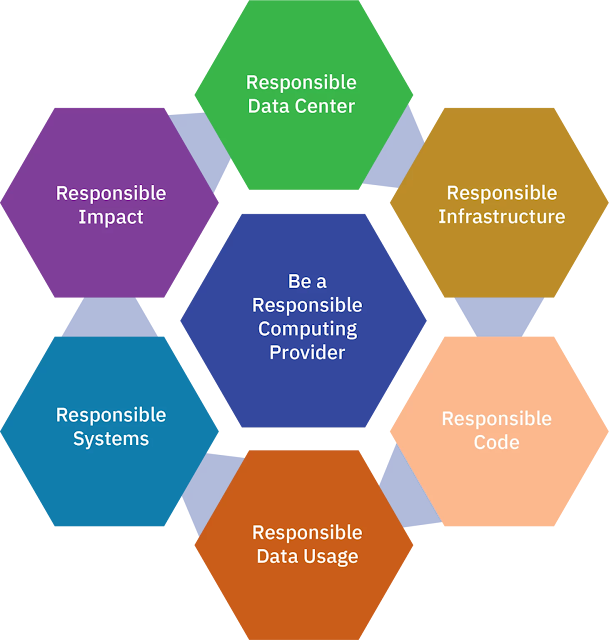In response to concerns faced by corporations about the impact of technology on our environment, IBM founded the Responsible.Computing() movement, creating a membership consortium with Dell that is managed by the Object Management Group.
Customers and partners expect responsible corporate policies and practices, and they also build loyalty with employees. Responsible computing establishes a cohesive, interconnected framework across six critical domains to provide every organization the ability to educate on their responsibilities, define goals and measure their progress against these aspirations:
The Responsible.Computing() framework’s six domains of focus
The framework consists of six domains of focus that demonstrate how IBM reflects responsibility:
◉ Data center: Reducing the environmental impact of building and maintaining data centers.
◉ Infrastructure: An end-to-end approach into the lifecycle of computing units, such as sourcing precious and rare metals and reducing their usage, reducing energy and computing units, and ultimately recycling the units
◉ Code: Writing efficient, open and secure code.
◉ Data usage: Implementing data privacy and transparency practices and requesting consent for use and authorization for any data acquisition.
◉ Systems: Producing ethical and unbiased systems, including explainable AI.
◉ Impact: Addressing societal issues, such as social mobility.
In an era where technology is pivotal in shaping politics, digital economies and transitional industries (e.g., the automotive industry), the Responsible.Computing() framework expands beyond just sustainability and climate change and adds other domains, such as ethics, security and openness.
Download the white paper and learn more
IBM Cloud is a major contributor to the advancement of technology, but beyond providing technical breakthroughs, we believe in preserving data privacy and security and promoting trust and ethics in our products, right from design. IBM Cloud collaborates with industry, governments and regulators to protect the environment, reduce consumption, preserve data privacy, write efficient code and develop trusted systems, all while tackling modern issues in society.
Source: ibm.com






0 comments:
Post a Comment